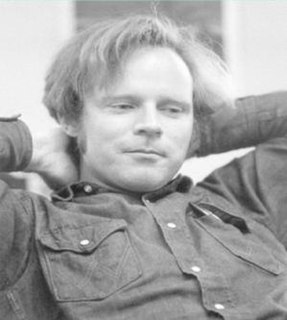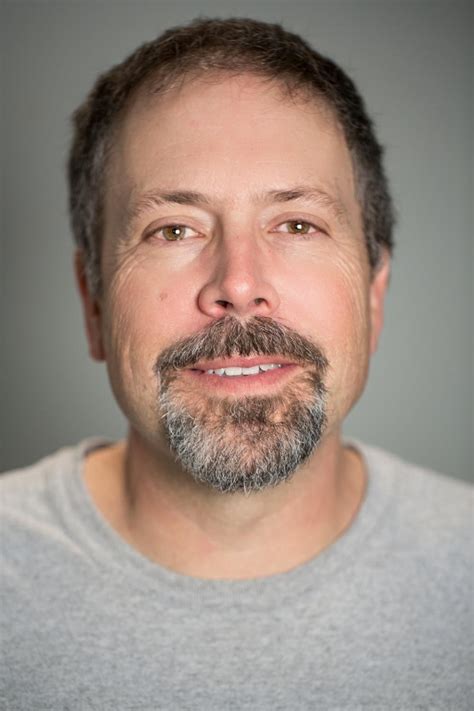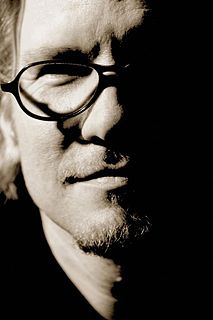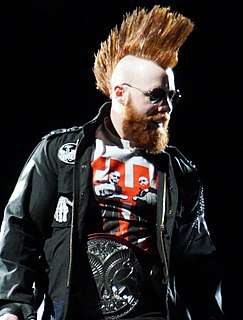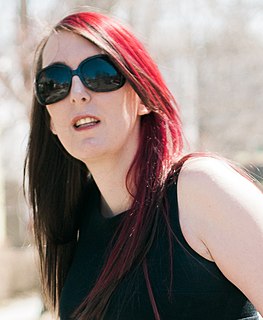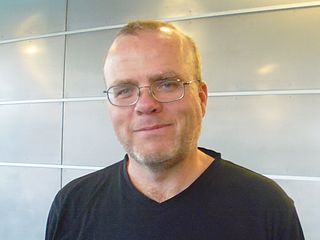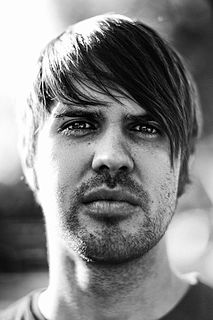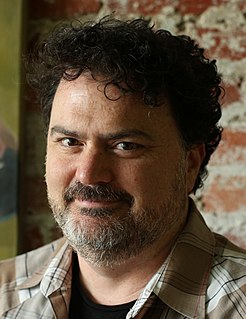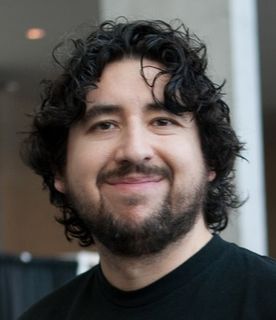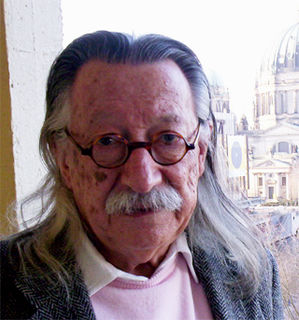Top 178 Programmer Quotes & Sayings - Page 3
Explore popular Programmer quotes.
Last updated on December 19, 2024.
We would write our songs, then we'd have a programmer come in and add, for lack of a better term, bloops and bleeps on top of everything. Of course, the funny thing is that a lot of the modern-day dance music people are super-influenced by the '70s and '80s stuff that we already love. So it was a natural fit for No Doubt.
If you're a doctor, or a scientist, or a computer programmer, it shouldn't matter whether you come from Nigeria, or Norway, or any other country on this earth. Today though we have a system that rewards ties of blood, ties of kin, ties of clan. That's one of the most un-American immigration systems I can imagine.
UNIX has a philosophy, it has 25 years of history behind it, and most importantly, it has a clean core. It strives for something - some kind of beauty. And that's really what struck me as a programmer. Operating systems that normal home users are used to, such as DOS and Windows, didn't have any way of life. Nobody tried to design Windows - it just grew in random directions without any kind of thought behind it. [...] I don't think Microsoft is evil in itself; I just think that they make really crappy operating systems.
My high school, the Illinois Mathematics and Science Academy, showed me that anything is possible and that you're never too young to think big. At 15, I worked as a computer programmer at the Fermi National Accelerator Laboratory, or Fermilab. After graduating, I attended Stanford for a degree in economics and computer science.
The complexity of C++ (even more complexity has been added in the new C++), and the resulting impact on productivity, is no longer justified. All the hoops that the C++ programmer had to jump through in order to use a C-compatible language make no sense anymore - they're just a waste of time and effort. Now, Go makes much more sense for the class of problems that C++ was originally intended to solve.
After moving to Los Angeles in the early '90s, I started looking into "music for picture" more seriously and in broader scope. My collaboration as a programmer and arranger with Graeme Revell exposed me for the first time to the full spectrum of film music, including the hectic demands of orchestral scoring and the power politics surrounding the finalization of any score for a major motion picture in Hollywood.
The corollary of constant change is ignorance. This is not often talked about: we computer experts barely know what we're doing. We're good at fussing and figuring out. We function well in a sea of unknowns. Our experience has only prepared us to deal with confusion. A programmer who denies this is probably lying, or else is densely unaware of himself.
I actually started off majoring in computer science, but I knew right away I wasn't going to stay with it. It was because I had this one professor who was the loneliest, saddest man I've ever known. He was a programmer, and I knew that I didn't want to do whatever he did. So after that, I switched to Communications.
The truth is I'm not actually an expert programmer! I really don't consider myself to be an expert at anything. For me, it's more about having a well-rounded and broad horizon. I think that's where a lot of the more interesting things come from - mashing up completely disparate aspects of life to create something new and original.
When you think about it, there's no way to input things into a computer. It's all... the holes only go out, right? Like you can plug a keyboard or a mouse in but that's a trick because the computer thinks the inputs are outputs. That's a programmer trick, basically magic. The key to the future is to make holes that go in too.
With the exceptional talent that is Guy Sigsworth as producer and collaborator, we have recorded a collection of original songs that sees me moving away from a generic line up and back into the world of a programmer. Born of reconstructed improvisation I like to think of it as Prog-Pop, but I also like to think of big dogs as small horses. So don’t hang on to that thought long. Unless, of course, you think it astute of me in which case I am right
In this respect a program is like a poem: you cannot write a poem without writing it. Yet people talk about programming as if it were a production process and measure "programmer productivity" in terms of "number of lines of code produced". In so doing they book that number on the wrong side of the ledger: we should always refer to "the number of lines of code spent".
The error which underlies the very existence of this debate is that there is some kind of perfect Platonic form of the computer language, which some real languages reflect more perfectly than others. Plato was brilliant for his time but reality is not expressable in terms of arbitrary visions of perfection, and furthermore, one programmer's ideal is often another's hell.
Not having a schedule is OK if it's your PhD and you plan to spend 14 years on the thing, or if you're a programmer working on the next Duke Nukem and we'll ship when we're good and ready. But for almost any kind of real business, you just have to know how long things are going to take, because developing a product costs money.
Programming is how we talk to the machines that are increasingly woven into our lives. If you aren't a programmer, you're like one of the unlettered people of the Middle Ages who were told what to think by the literate priesthood. We had a Renaissance when more people could read and write; we'll have another one when everyone programs.
The best programs are written so that computing machines can perform them quickly and so that human beings can understand them clearly. A programmer is ideally an essayist who works with traditional aesthetic and literary forms as well as mathematical concepts, to communicate the way that an algorithm works and to convince a reader that the results will be correct.
The difference between the best worker on computer hardware and the average may be 2 to 1, if you're lucky. With automobiles, maybe 2 to 1. But in software, it's at least 25 to 1. The difference between the average programmer and a great one is at least that. The secret of my success is that we have gone to exceptional lengths to hire the best people in the world. And when you're in a field where the dynamic range is 25 to 1, boy, does it pay off.
The term architecture is used here to describe the attributes of a system as seen by the programmer, i.e., the conceptual structure and functional behavior, as distinct from the organization of the data flow and controls, the logical design, and the physical implementation. i. Additional details concerning the architecture
Since I have always preferred making plans to executing them, I have gravitated towards situations and systems that, once set into operation, could create music with little or no intervention on my part. That is to say, I tend towards the roles of planner and programmer, and then become an audience to the results
Observe that for the programmer, as for the chef, the urgency of the patron may govern the scheduled completion of the task, but it cannot govern the actual completion. An omelette, promised in two minutes, may appear to be progressing nicely. But when it has not set in two minutes, the customer has two choices - wait or eat it raw. Software customers have had the same choices.
In the '80s, society created a caricature of what a hacker or a programmer looked like: a guy wearing a hoodie, drinking energy drinks, sitting in a basement somewhere coding. Today, programmers look like the men we see in the show 'Silicon Valley' on HBO. If you look at the message girls are getting, it's saying, 'This is not for you.'
All the things I used to count on to get my music out there - record companies, they're all gone. And radio stations, they're gone - they're completely controlled by the government. If they're not controlled by the government, they're controlled by a programmer who's controlled by the government. Mainstream radio is suspect. You can't trust it.
It's a very complex network of genes making products which go into the nucleus and turn on other genes. And, in fact, you find a continuing network of processes going on in a very complex way by which genes are subject to these continual adjustments, as you might say - the computer programmer deciding which genes ultimately will work.

